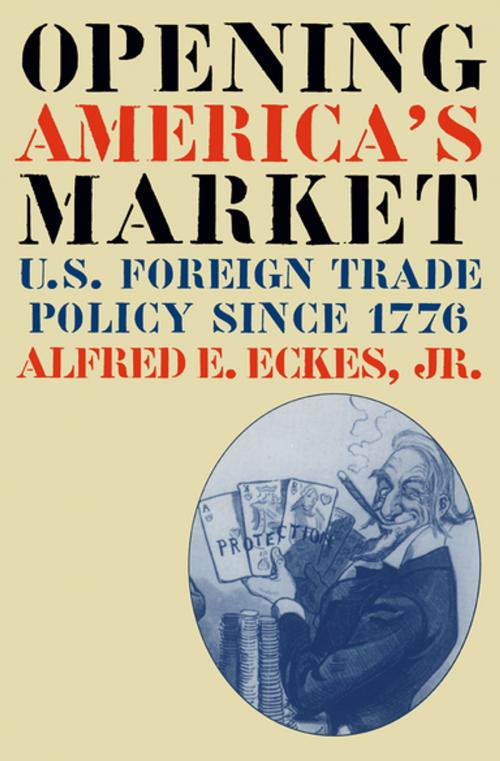Opening America's Market
U.S. Foreign Trade Policy Since 1776
Nonfiction, Social & Cultural Studies, Political Science, Politics, Economic Policy, International, International Relations| Author: | Alfred E. Eckes | ISBN: | 9780807861189 |
| Publisher: | The University of North Carolina Press | Publication: | November 9, 2000 |
| Imprint: | The University of North Carolina Press | Language: | English |
| Author: | Alfred E. Eckes |
| ISBN: | 9780807861189 |
| Publisher: | The University of North Carolina Press |
| Publication: | November 9, 2000 |
| Imprint: | The University of North Carolina Press |
| Language: | English |
Despite the passage of NAFTA and other recent free trade victories in the United States, former U.S. trade official Alfred Eckes warns that these developments have a dark side. Opening America's Market offers a bold critique of U.S. trade policies over the last sixty years, placing them within a historical perspective.
Eckes reconsiders trade policy issues and events from Benjamin Franklin to Bill Clinton, attributing growing political unrest and economic insecurity in the 1990s to shortsighted policy decisions made in the generation after World War II. Eager to win the Cold War and promote the benefits of free trade, American officials generously opened the domestic market to imports but tolerated foreign discrimination against American goods. American consumers and corporations gained in the resulting global economy, but many low-skilled workers have become casualties.
Eckes also challenges criticisms of the 'infamous' protectionist Smoot-Hawley Tariff Act of 1930, which allegedly worsened the Great Depression and provoked foreign retaliation. In trade history, he says, this episode was merely a mole hill, not a mountain.
Despite the passage of NAFTA and other recent free trade victories in the United States, former U.S. trade official Alfred Eckes warns that these developments have a dark side. Opening America's Market offers a bold critique of U.S. trade policies over the last sixty years, placing them within a historical perspective.
Eckes reconsiders trade policy issues and events from Benjamin Franklin to Bill Clinton, attributing growing political unrest and economic insecurity in the 1990s to shortsighted policy decisions made in the generation after World War II. Eager to win the Cold War and promote the benefits of free trade, American officials generously opened the domestic market to imports but tolerated foreign discrimination against American goods. American consumers and corporations gained in the resulting global economy, but many low-skilled workers have become casualties.
Eckes also challenges criticisms of the 'infamous' protectionist Smoot-Hawley Tariff Act of 1930, which allegedly worsened the Great Depression and provoked foreign retaliation. In trade history, he says, this episode was merely a mole hill, not a mountain.















